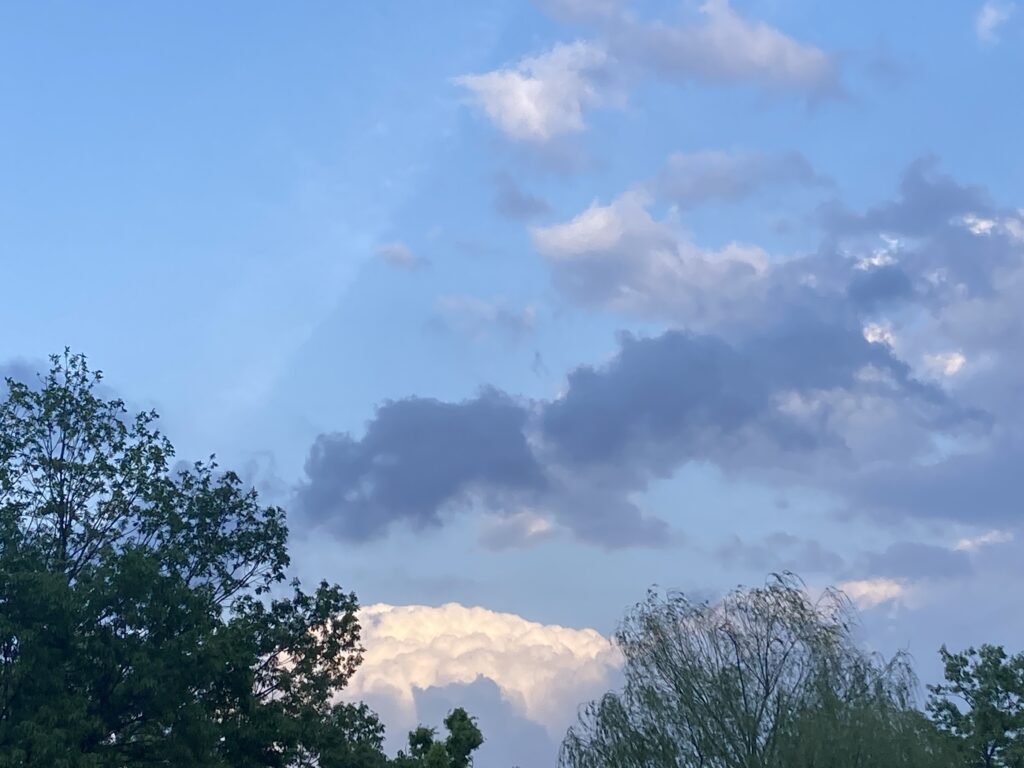Last night, a man with an unspecified weapon followed me around an underground parking garage. Now, don’t panic—it was only a dream. In this dream, I turned away from him; I ran up a flight of gray stairs to a second level, searching for a place to hide among the exposed pillars and the featureless walls. My footsteps echoed on the concrete. His face never appeared, but I could hear him. I knew he could hear me.
I woke not with a start, but with a gradual, druggy reintroduction to the world. A slow fade-in. First, the tepid darkness stepped onto center stage. To the right, the living. To the left, a window. The camera traveled up, to a slender band of dim light taunting me from above the curtain rod. Then to the tangle of sheets trapping my body like an oil slick. My arms and legs were filled with pins and needles. The terror was a fever and it occupied me the way air does a room.
Go back to sleep? No, impossible. When I felt able, I went to the living room and tried to wipe my mind with the antiseptic light of the sunrise. Then I sat down to write, to commit to memory this thing of pain. It helped, though I couldn’t release the notion that a fear this strong would not be forgotten. Some symptom of it must linger, I thought, upset but perversely pleased, too. In the land bracketed by my body, the terror once owned it all; the ruins of its once-mighty civilization would never really be eroded away. Some part of it must leave a twisted mark behind.
But by late afternoon, the thing that was able to terrorize me in the early morning—so fully, so cuttingly—had dissipated entirely. I looked up at the scattered clouds and wondered where it had gone. It disturbed me, as it always has, how quickly I can forget pain, no matter the scale of it.
It disturbed me? Now, don’t panic.

I think about pain regularly—for me, it is a monthly, bodily function. But even the deepest forms of it, I can forget readily. I know this is a coping mechanism without which the human species could not continue to exist. But I hate it, because it makes every other feeling feel counterfeit. It makes life feel like an endless lesson with no true catharsis at its end. I think about gratification, mortification, flagellation, followed again by gratification, then mortification, then flagellation. Each step reoccurring in an infinite choreography. Could I be trapped in a cycle with no center, like an object in orbit with no knowledge of its star, like a dark speck floating in something fleshy and abyssal? I could fall forever and never reach the bottom of the future we’ve made.
I’ll confess. Sometimes I have this difficult feeling that can be imperfectly summarized as: I don’t want anyone to look at me, or think of me, or feel for me. Now, don’t panic—it’s only a feeling. I’ll go on—I want to exist inside a matte black sphere and be unknown. I want to travel the world and never register on any radar, never appear in any image, never disturb any space as I move within it. It’s not precisely invisibility that I want, and it’s not a desire to disappear. I do want to be visible, but rather than acting like an ordinary object in a landscape, the light bouncing off me, I want to be Vantablack. I want to be darker than dark. I want to exist outside this. I want to carry the pain like a souvenir. I want to put my gloved hands in the shadow box and rewrite the ending. I don’t want to be the girl in the nightmare, nor the man. I don’t want to be the weapon he holds, nor the towering blocks of concrete that box her in. I want to be somewhere in the corner, unnoticed. I want to stand with my back to the wall, arms crossed over my chest, and watch it unfold, or not.